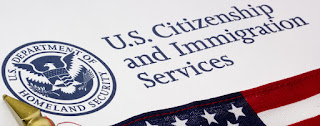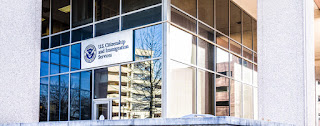Introduction
On March 9, 2018, the U.S. Department of State (DOS) published the Visa Bulletin for April 2018 [
PDF version]. The April 2018 Visa Bulletin contains filing dates and final action dates for the family-sponsored and employment-based preference categories in April 2018. On March 13, 2018, the United States Citizenship and Immigration Services (USCIS) determined that those seeking adjustment of status in the family-sponsored preference categories must use the filing dates, whereas those seeking adjustment of status in the employment-based preference categories must use the final action dates [
PDF version].
In this article, we will examine the relevant charts and news found in the April 2018 Visa Bulletin.
To learn more about the subject, please see our articles on how to use the visa bulletin as an applicant for adjustment of status [
see article] and the difference between the filing dates and the final action dates [
see article].
Please also see our index of articles on the immigrant visa bulletin from the current fiscal year and earlier [
see article].
Family-Sponsored Cases in April 2018 Visa Bulletin
Eligible applicants for adjustment of status based on an approved family-sponsored immigrant visa petition must use the filing dates from the April 2018 Visa Bulletin. The filing dates are more favorable to adjustment of status applicants than are the final action dates.
In order for the beneficiary of an approved family-sponsored immigrant visa petition to file for adjustment of status in April 2018 (provided that he or she is otherwise eligible for adjustment of status), the applicant's priority date must be earlier than the filing date for his or her preference category and chargeability area. For family-sponsored cases, the priority date is generally the date on which the visa petition was properly filed with the USCIS.
The following chart contains the filing dates for family-sponsored cases for April 2018 [
see here].
For your reference, the following chart contains the final action dates for family-sponsored cases in April 2018 (note that adjustment applicants must use the filing dates) [
see here].
Employment-Based Cases in April 2018 Visa Bulletin
Beneficiaries of approved employment-based immigrant visa petitions must use the final action date charts from the April 2018 Visa Bulletin to determine whether they are eligible to apply for adjustment of status in that month. In order for the beneficiary of an approved employment-based immigrant visa petition to file for adjustment of status in April 2018 (provided that he or she is otherwise eligible to apply for adjustment), his or her priority date must be earlier than the filing date for his or her preference category and chargeability area. In employment-based cases where labor certification was required, the priority date will generally be the date on which the labor certification was approved by the U.S. Department of Labor. In cases where labor certification was not required, the priority date will generally be the date on which the petition was properly filed with the USCIS.
The following chart lists the final action dates for employment-based cases in April 2018 [
see here].
News and Notes from the April 2018 Visa Bulletin
First, the DOS imposed E1 final action dates for China-mainland born and India. This was necessitated by the high demand for E1 visas from nationals of China and India, which caused the countries to reach their per-country limits under the Immigration and Nationality Act (INA). The DOS stated that there may be future movement during the current fiscal year in the E1 final action dates for China and India if there is a decline in worldwide demand for E1 numbers.
The DOS had expected to impose a final action date in the Vietnam EB5 category. However, this move has been delayed until May. Please see our companion blog post for more information [
see blog].
Finally, the DOS continues to expect to reach the annual fiscal year 2018 limit of 50 Special Immigrant Visas in the SI category early this year. For this reason, the DOS is maintaining an April final action date of April 22, 2012 in the SI category. The SQ Special Immigrant Visa category for certain Iraqi and Afghan nationals employed by or on behalf of the U.S. government in Iraq and Afghanistan remains current and is unaffected by the limited availability of the SI category.
Conclusion
Those waiting to apply for immigrant visas based on approved preference petitions should monitor the monthly visa bulletins in order to have an idea of when they may be able to apply for a visa. This is especially important for those who intend to seek an immigrant visa through the adjustment of status process. Immigrant visa applicants are well-advised to consult with an experienced immigration attorney for case-specific guidance.
Please visit the
nyc immigration lawyers website for further information. The Law Offices of Grinberg & Segal, PLLC focuses vast segment of its practice on immigration law. This steadfast dedication has resulted in thousands of immigrants throughout the United States.









